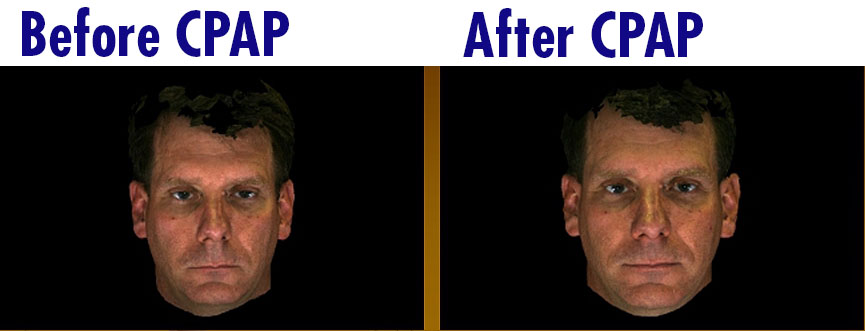
Sleeping Beauty: Science Proves Beauty Rest Is Real

Get the world’s most fascinating discoveries delivered straight to your inbox.
You are now subscribed
Your newsletter sign-up was successful
Want to add more newsletters?

Delivered Daily
Daily Newsletter
Sign up for the latest discoveries, groundbreaking research and fascinating breakthroughs that impact you and the wider world direct to your inbox.

Once a week
Life's Little Mysteries
Feed your curiosity with an exclusive mystery every week, solved with science and delivered direct to your inbox before it's seen anywhere else.

Once a week
How It Works
Sign up to our free science & technology newsletter for your weekly fix of fascinating articles, quick quizzes, amazing images, and more

Delivered daily
Space.com Newsletter
Breaking space news, the latest updates on rocket launches, skywatching events and more!

Once a month
Watch This Space
Sign up to our monthly entertainment newsletter to keep up with all our coverage of the latest sci-fi and space movies, tv shows, games and books.

Once a week
Night Sky This Week
Discover this week's must-see night sky events, moon phases, and stunning astrophotos. Sign up for our skywatching newsletter and explore the universe with us!
Join the club
Get full access to premium articles, exclusive features and a growing list of member rewards.
It could have been published in the Journal of No Kidding. Instead, it appears this month in the Journal of Clinical Sleep Medicine: Scientists have confirmed that when you sleep better, you look better.
This isn't merely a scientific finding about looking like death after a rough night. (Maybe you didn't need proof of that.) This is about the converse: how several months of solid sleep — uninterrupted by sleep apnea, heavy snoring or irregular breathing — can actually make you look younger and more attractive.
Researchers at the University of Michigan claim they are the first to use a precise, scientific face-measuring system called photogrammetry to objectively measure the youthfulness and attractiveness of 20 patients who underwent treatment for sleep apnea.
Independent medical professionals and other volunteers judged these special photographs, taken before and after the patients' treatment. The judges ranked the "after" images more positively for the majority of the patients.
More than one-quarter of the U.S. population report occasionally not getting enough sleep, while nearly 10 percent — or 30 million Americans — experience chronic insomnia, according to the Centers for Disease Control and Prevention. And more than 7 percent of Americans have obstructive sleep apnea interrupting their sleep, according to various studies. [7 Strange Facts About Insomnia]
Very little data is available, however, on the percentage of Americans who are ugly. Estimates range wildly.
The new study grew out of anecdotal evidence that patients gradually began to look more attractive as their sleep-apnea treatments progressed, said researcher Dr. Ronald Chervin, director of the University of Michigan Sleep Disorders Center.
Get the world’s most fascinating discoveries delivered straight to your inbox.
"We perceived that our [sleep apnea] patients often looked better, or reported that they'd been told they looked better, after treatment," Chervin said. "But no one has ever actually studied this."
So Chervin teamed up with a reconstructive surgeon, Dr. Steven Buchman, also at the University of Michigan, to use photogrammetry to take an array of images of the patients under identical conditions before and after treatment. Photogrammetry can measure tiny differences in facial contours, and helps facial surgeons plan operations and assess their impact.
"One of the breakthroughs in plastic surgery over the last decade has been our aim to get more objective in our outcomes," Buchman said. "The technology used in this study demonstrates the real relationship between how you look and how you really are doing, from a health perspective."
Specifically, the photo analysis revealed fewer forehead wrinkles, and less redness over the cheeks and under the eyes, in the post-treatment images.
The researchers said that although their study was small and limited, it demonstrates the importance of not only seeking treatment for sleep disorders, but also of getting a good night's rest in general. By extension, correcting your own snoring implies your bed partner will get a chance to look a little more attractive, too.
Christopher Wanjek is the author of a new novel, "Hey, Einstein!", a comical nature-versus-nurture tale about raising clones of Albert Einstein in less-than-ideal settings. His column, Bad Medicine, appears regularly on LiveScience.

Christopher Wanjek is a Live Science contributor and a health and science writer. He is the author of three science books: Spacefarers (2020), Food at Work (2005) and Bad Medicine (2003). His "Food at Work" book and project, concerning workers' health, safety and productivity, was commissioned by the U.N.'s International Labor Organization. For Live Science, Christopher covers public health, nutrition and biology, and he has written extensively for The Washington Post and Sky & Telescope among others, as well as for the NASA Goddard Space Flight Center, where he was a senior writer. Christopher holds a Master of Health degree from Harvard School of Public Health and a degree in journalism from Temple University.
 Live Science Plus
Live Science Plus











